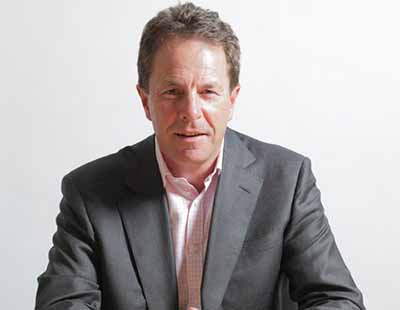
FOREMOST Human Resources (HR) expert, Peter Cheese has challenged professionals in the field of Human Resources to look beyond traditional thinking and established standardised practices.
According to Cheese, who is also Chief Executive of United Kingdom based Chartered Institute of Personal Management (CIPD), with a mixed picture of economic growth and continued change and uncertainty, organisations everywhere are being challenged to innovate and adapt.
He explained that business has to become more people centric in every sense and make a shift from accounting to more accountability, adding that HR has to be at the forefront, acting with confidence and credibility founded on a strong base of professional knowledge and competence.
Cheese said: “We know that there’s no one size fits all model for great HR, and we need to adapt our HR practices to the context and needs of our workforces and organisations” noting that “But what guides our actions and decisions? Any business is about judgments and priorities that drive decisions and actions, but this need to be framed through principles and values that drive good, ethical and sustainable business more clearly.
These principles should provide the framework for HR to support the judgments and often the compromises that we are so often called on to make. Furthermore, we need to challenge ourselves in examining our processes, policies, and practices as the world of work evolves. We must look at the purpose and outcomes of what we do more critically, and understand what fundamental principles and base of knowledge make those practices effective.
“Ultimately, we need a new definition of what it means to be an HR professional, with a greater focus on clarity of professional capability and purpose, and a strengthened ability to provide trusted and credible advice to businesses, whatever the circumstances.”
Meanwhile, new research from the CIPD has found that when tasked with increasing organisational performance, 30% of business leaders would choose to continue rewarding high-performing individuals regardless of the values they demonstrate, suggesting that the next big corporate scandal is already in the pipeline.
The extensive research, which according to CIPD is based on a survey of approximately 3,500 business leaders and 2,200 HR practitioners around the world, explores ethical decision-making in business and the principles and values that influence corporate behaviour.
Only 1 in 4 (24%) business leaders and HR practitioners said they are ‘always’ prepared to make short-term sacrifices for the long-term interests of people, organisations, and society.
In addition, three-quarters of business leaders describe employees’ ability to influence decisions that affect them as either ‘nice to have but not imperative’ or as ‘applying but can be compromised’.
Other key findings from the report, include:
29% of business leaders (compared with 34% of HR practitioners) report they have to compromise their principles to meet current business needs.
Less than half of business leaders and HR practitioners in the survey (48%) believe that their core values cannot be compromised whatever the context.
22% of business leaders (and 21% of HR practitioners) say they have to compromise on their principles because they affect their ability to succeed in their organisation.
When asked to choose, 37% of business leaders (and 43% of HR practitioners) say decisions by their company are justified as long they follow the laws of the country they operate in, compared to 63% (57% of HR practitioners) who believe their organisation should take account of the moral responsibility it has for employees.
Cheese said: “The VW (Volkswagen) scandal is a stark reminder that organisations – particularly large and complex ones – need to think carefully about how they create organisational culture and how they increase the chance that people at all levels of the organisation will make ethically sound decisions.
“Our research suggests that far too many business and HR leaders continue to be focused on the short-term at the expense of the long-term interests of the organisation and its people. This risks unintended consequences when people try to cut corners or maximize short-term returns without thinking about the consequences of their actions on all their stakeholders, which includes employees, customers, suppliers, and communities, and, as we’ve seen in the case of VW, the shockwaves are considerable and can significantly damage even the biggest brands.”
This report is the first stage of the CIPD’s Profession for the Future strategy. The findings will inform the development of a set of core principles, which could provide a framework for more balanced decision-making in the boardroom and beyond. It draws on existing moral philosophy literature to identify and test eight lenses, which people might use when making ethical choices in the workplace. These include the view that organisational profit is not an end in itself, but that business decisions should pursue the long-term interests of people, economies, and societies.
Cheese added: “We also need to see more transparency and consistent reporting of the people and organisational elements of business to get more insight on how an organisation is working, how it is looking after and developing its people, and some understanding of corporate cultures. We need to move beyond accounting to accountability. We’re starting by identifying some key principles that can help business leaders; HR practitioners and employees make ethical decisions when under pressure and faced with ambiguous and complex situations. Our research also raises questions about the purpose of business and whether treating people fairly should be seen as a means to an end or an end in itself.
“Looking ahead, we’ll be working to ensure the HR professional of the future is equipped to apply these principles with expert knowledge about people and organisations as well as a thorough understanding of the business context.”





